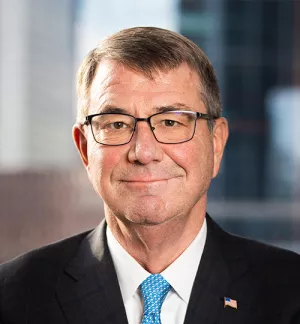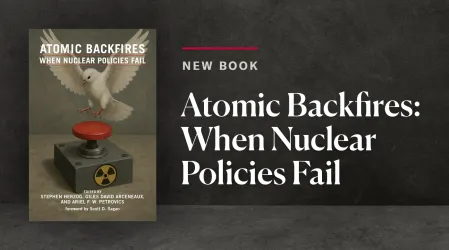Counterterror's Management Style
by Ashton B. Carter
June 8, 2002
Reprinted from The New York Times
CAMBRIDGE, MA -- President Bush's proposed new Department of Homeland Security, bringing together scattered agencies with roles in protecting against terrorism, provides laudable managerial tidiness. Its creation will focus these agencies on their new priority of protecting the country. But the basic problem of overall strategy and coordination remains, and inserting a new agency into the mix will not solve it. Only the White House itself can play the crucial coordinating and planning role that is required.
The new department would bring under one roof the various border forces -- Customs, Immigration and Naturalization, agricultural inspection service, and so on -- that bewilder Americans when they fly back from overseas but show tempting bureaucratic disarray to terrorists entering and leaving this country. It would unite the Federal Emergency Management Agency's capabilities to respond to disasters with the Public Health Service's means for dealing with epidemics in the event of terrorism. But with the Defense Department, F.B.I. and C.I.A. still separate, the reorganization won't remedy what Congressional intelligence committees have been investigating this week: the failure of various agencies to work together effectively in the past to prevent terrorism. Remedying that will take White House oversight.
Are we to understand that Mr. Ridge will stay in his post in the White House Office of Homeland Security, an office next to the president, making the new department and the old departments and agencies work together? If so, why has he been unable to do so up to now? Clearly, that office needs to be strengthened; its role needs to be separate from that of the new cabinet-level department.
The work of enhancing homeland security also requires moving beyond restructuring. Mr. Bush has not yet explained how we will coordinate the capabilities we have, nor has he explained how we will build the capabilities that we need. Nine months after the anthrax mailing attacks, for example, forensic analysis has still not revealed the source of the germ powder or its mailer, and no agency has the database to solve this crime.
We need a budget plan covering all the agencies, to finance the new tools we need -- a plan that is thought through and defended by the White House. (Isn't Mr. Ridge supposed to do that, too?)
There is also reason to question whether the Bush administration is prepared for the sheer scale of managerial virtuosity it will take to create this new department. The White House suggests that the creation of a Department of Homeland Security will represent the largest structural change in the United States government since the aftermath of World War II. Washington's management structures are so antiquated that they resemble what the private sector would look like if it combined the 1940's management structures of the Ford Motor Company, the Bell telephone system and the old United Fruit.
Few Washington officials are managerially oriented; most have risen because of their policy skills. Few, including presidents, are really prepared to spend political capital making it possible for future occupants of their offices to be more effective.
Organization and management are the stuff of small politics: overcoming bureaucratic inertia and entrenched government unions and contractors. On Capitol Hill separate authorization and oversight committees protect each piece of turf as jealously as the executive agencies themselves. Does President Bush have a take-no-prisoners manager to handle this daunting task, and will the president back up the new cabinet head in the many tedious skirmishes ahead? If not, we could end up with a system even more chaotic than today's.
Both the secretary of homeland security and the White House official who coordinates all agencies' antiterror work will have jobs of extraordinary scope and difficulty. There are no clear models to follow. But in the new world of international terrorism, success in their work is essential.
Ashton B. Carter, a professor at Harvard's Kennedy School and former assistant defense secretary, serves on the National Academy of Sciences' panel on countering terrorism.
Reprinted with permission.
Carter, Ash. “Counterterror's Management Style.” The New York Times, June 8, 2002





